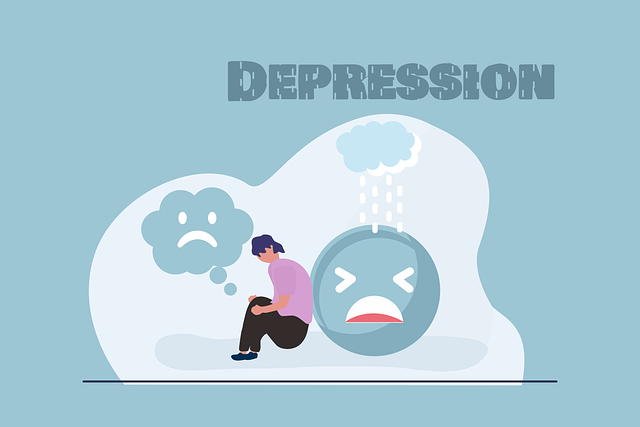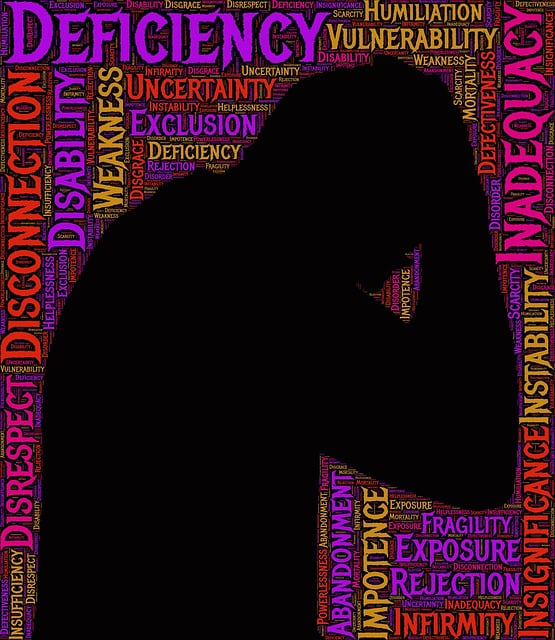Mental health policies, focusing on evidence-based practices like CBT and mindfulness, play a crucial role in supporting individuals during Golden Major Life Transitions (adolescence, young adulthood, middle age). These policies aim to reduce stigma, improve access to therapy, and build resilience through self-care techniques. However, current policies often overlook transitions like graduation or job changes, leaving young adults at risk of burnout. Integrating targeted therapy with awareness campaigns can proactively address these gaps, ensuring policies foster holistic mental well-being and life satisfaction during significant life shifts. Advocacy is key to driving policy change, emphasizing the connection between mental health and overall quality of life.
Mental health policy analysis and advocacy are vital components in fostering well-being societies. This article explores key aspects of mental health governance, focusing on its profound societal impact. We delve into ‘Golden Major Life Transitions Therapy’—a promising therapeutic approach targeting critical life changes. By critically analyzing current policies, we identify gaps and opportunities for improvement. Additionally, effective advocacy strategies are discussed to enhance access to therapy, ensuring support for those navigating mental health challenges.
- Understanding Mental Health Policy and its Impact on Society
- Golden Major Life Transitions Therapy: A Promising Approach
- Analyzing the Effectiveness of Current Mental Health Policies
- Advocacy Strategies for Improving Access to Therapy
Understanding Mental Health Policy and its Impact on Society

Mental health policy plays a pivotal role in shaping society’s approach to understanding and addressing psychological well-being. It involves a complex interplay of laws, regulations, and initiatives designed to ensure access to quality mental health services, promote early intervention, and reduce the stigma associated with mental illness. By implementing effective policies, governments can positively impact individuals’ lives, especially during critical Golden Major Life Transitions such as adolescence, young adulthood, and middle age. These transitions often present unique challenges that require tailored therapy and support systems to navigate stress reduction methods and successful stress management.
A comprehensive Mental Health Policy Analysis and Advocacy highlights the need for inclusive systems that cater to diverse mental health needs. It advocates for evidence-based practices, including various therapeutic approaches like cognitive behavioral therapy (CBT), mindfulness-based interventions, and psychoeducation, which have proven effective in managing a range of mental health disorders. Moreover, policy advocacy ensures that society’s collective efforts towards improving mental health are reflected in practical actions, ultimately fostering healthier communities where individuals can access the resources needed to thrive during life’s transformative moments.
Golden Major Life Transitions Therapy: A Promising Approach

Golden Major Life Transitions Therapy is a promising approach that focuses on supporting individuals during significant life changes, offering valuable tools for coping with the challenges that often accompany these transitions. This therapeutic method recognizes that major life events, such as career shifts, relationships ending or beginning, and retirement, can trigger mental health issues or exacerbate existing conditions. By providing a structured framework, this therapy equips clients with essential coping skills to navigate these transitional periods effectively.
The Golden Major Life Transitions Therapy model emphasizes the importance of self-care and resilience, aiming to enhance individuals’ ability to manage stress and maintain good mental health. Through various techniques, it seeks to reduce the stigma associated with mental illness by fostering open discussions about emotional experiences during life transitions. Additionally, this approach is designed to prevent burnout, a common issue among those facing major changes, helping them adapt and thrive in their new circumstances.
Analyzing the Effectiveness of Current Mental Health Policies

The effectiveness of current mental health policies is a critical aspect that demands meticulous scrutiny. These policies, while well-intentioned, often fail to address the complex needs of individuals navigating major life transitions. Golden moments such as graduation, marriage, or job changes can trigger emotional distress, and existing services may not adequately support those experiencing mental health challenges during these pivotal times. A comprehensive policy analysis should consider the impact on various demographics, especially young adults transitioning from education to employment, who are at a heightened risk of burnout.
Healthcare providers play a pivotal role in Burnout Prevention Strategies, and their emotional regulation is essential for delivering quality care. Mental Health Awareness campaigns can significantly contribute to early intervention and improved outcomes. By integrating these initiatives with targeted therapy during major life transitions, policymakers can foster resilience and better equip individuals to manage their mental well-being. Such an approach ensures that policies are not just reactive but proactive in addressing the psychological landscape of contemporary society.
Advocacy Strategies for Improving Access to Therapy

Advocacy plays a pivotal role in shaping mental health policies and ensuring equitable access to therapy, particularly during critical Golden Major Life Transitions. By championing causes and raising awareness, advocates can drive change that improves service delivery and support systems. One effective strategy involves highlighting the interconnectedness of mental well-being with overall life satisfaction, especially at significant junctures like graduation, marriage, or retirement. This approach not only emphasizes the urgency for early intervention but also encourages policy makers to integrate therapy into primary healthcare settings, making it more accessible.
Furthermore, Self-Care Practices, Social Skills Training, and Communication Strategies can be powerful tools in advocacy efforts. By promoting these as essential components of mental health support, advocates can foster a comprehensive understanding of well-being that extends beyond traditional therapy. This inclusive perspective ensures that policies not only fund specialized services but also encourage community-based initiatives, schools, workplaces, and social groups that prioritize mental health through education and skill-building.
Mental health policy analysis and advocacy are essential components in enhancing society’s well-being. By understanding the impact of mental health policies, we can identify areas for improvement. The article has explored promising approaches like Golden Major Life Transitions Therapy, which offers novel solutions to common mental health challenges. While current policies have made strides, further analysis reveals room for enhancement. Effective advocacy strategies are crucial to improving access to therapy, ensuring that individuals receive the support they need during pivotal life transitions and beyond. Together, these insights can guide policymakers in creating more robust mental health frameworks.








